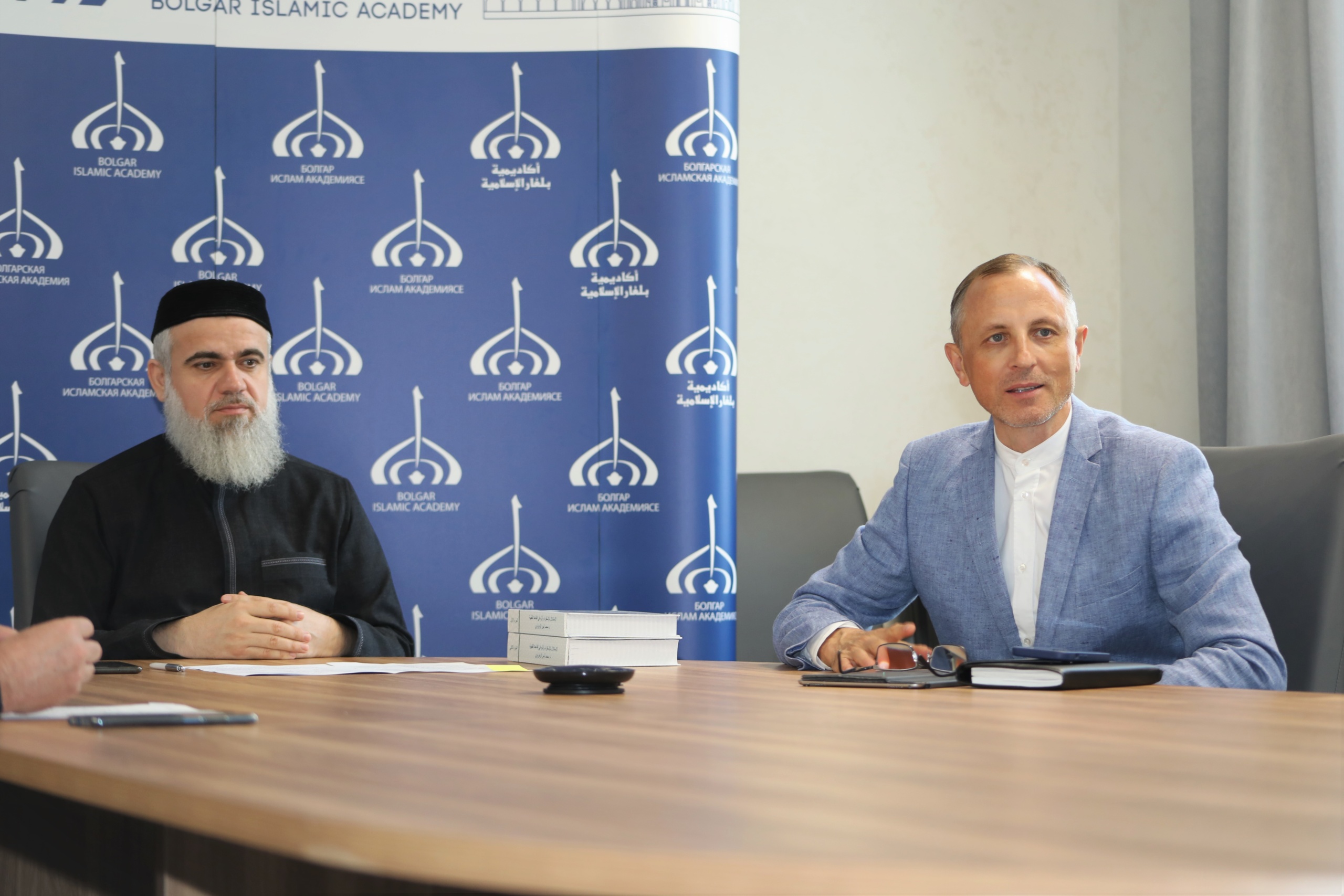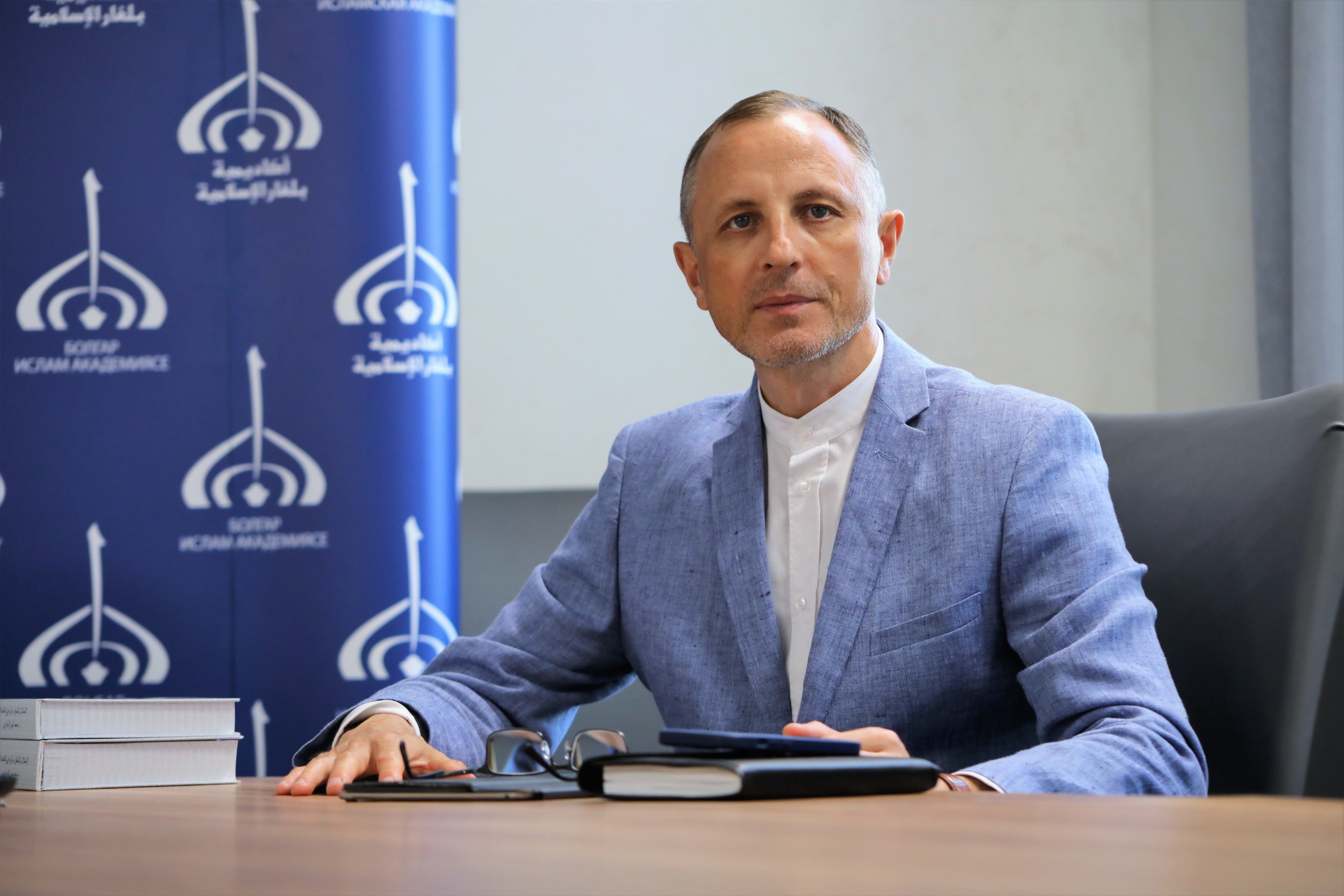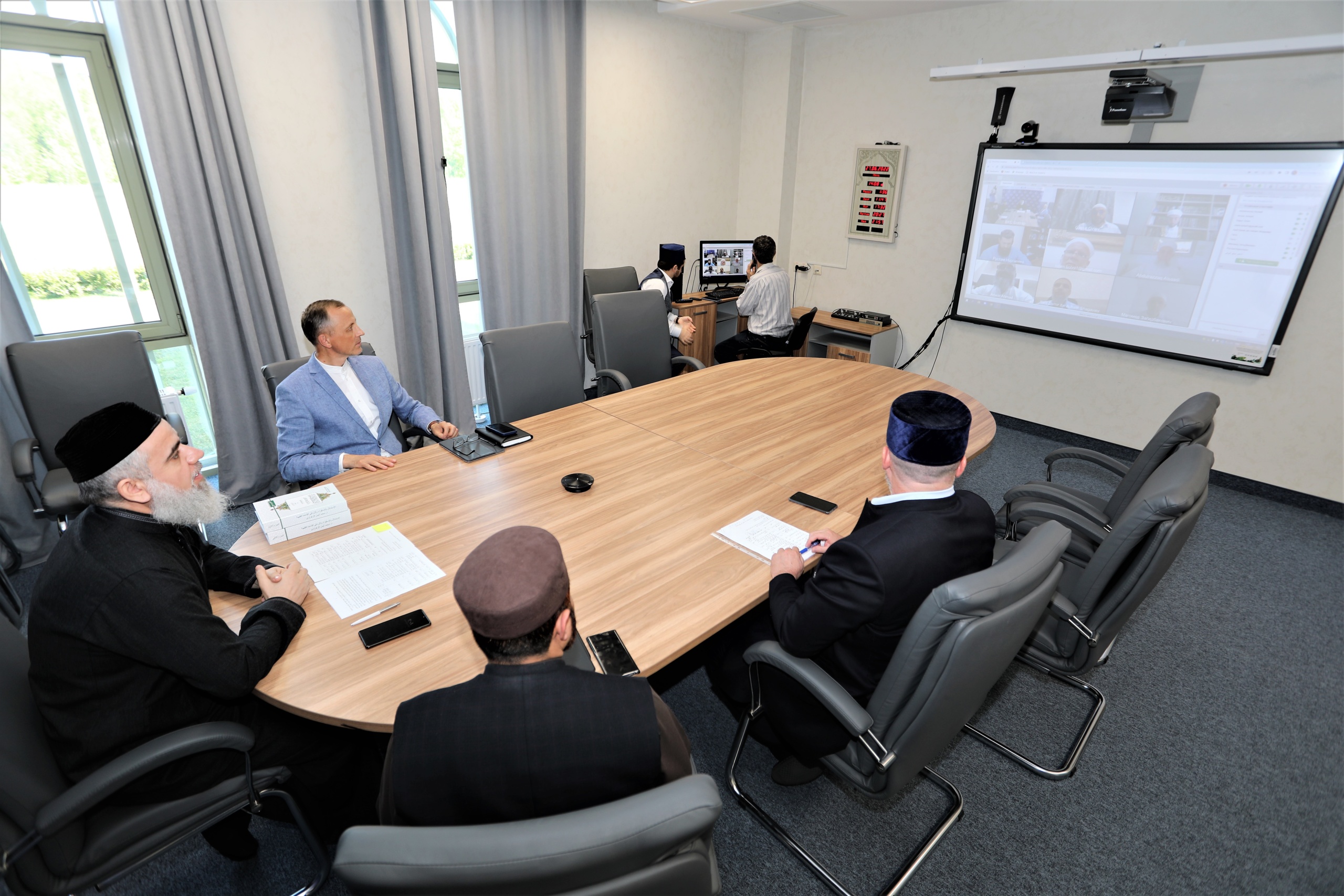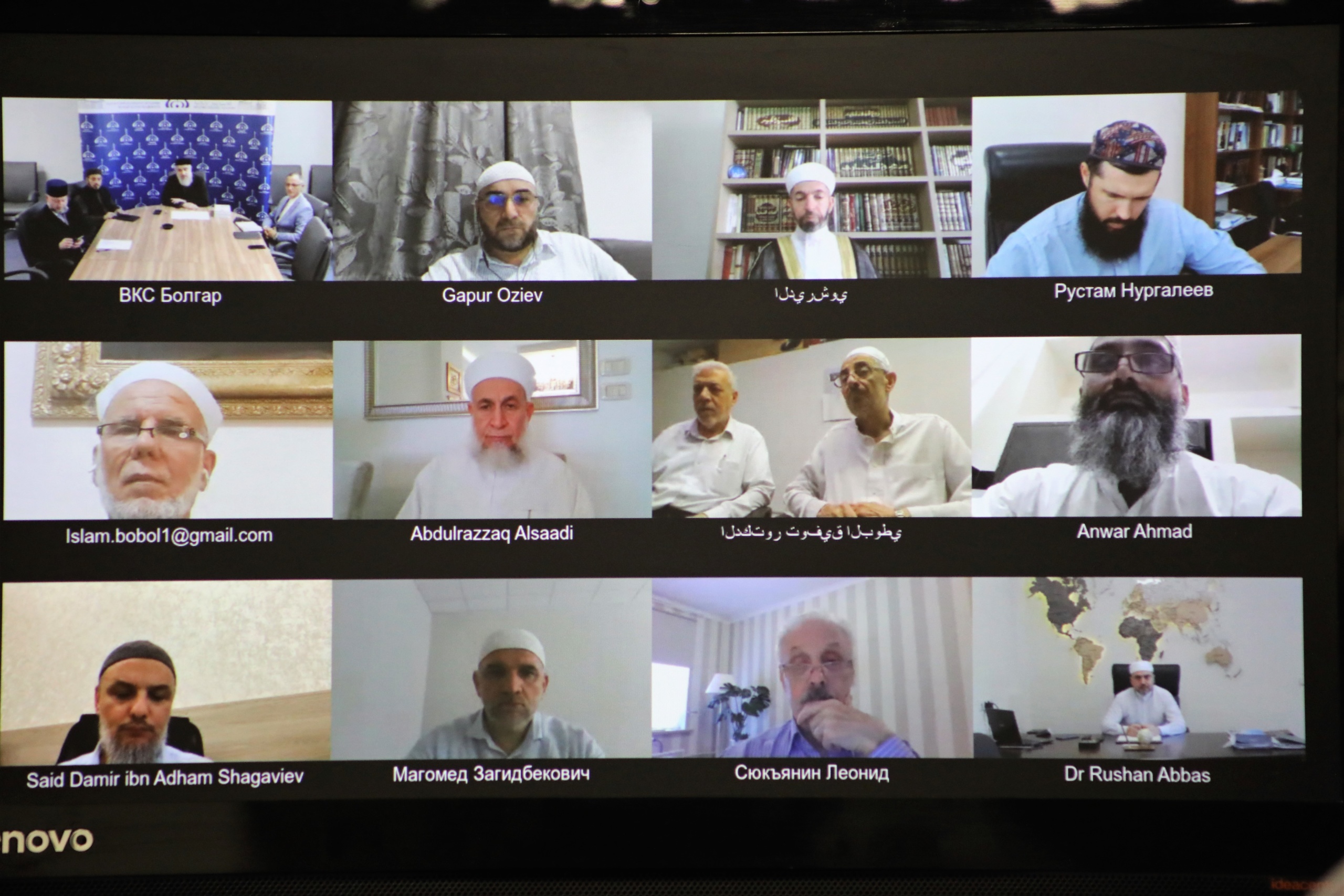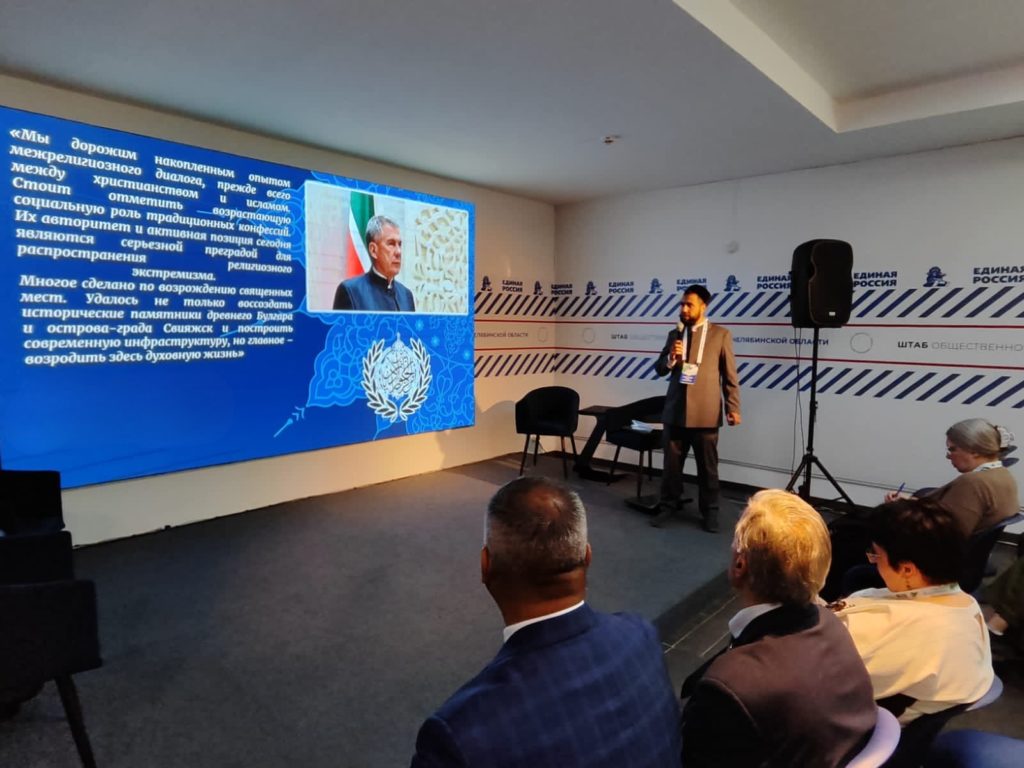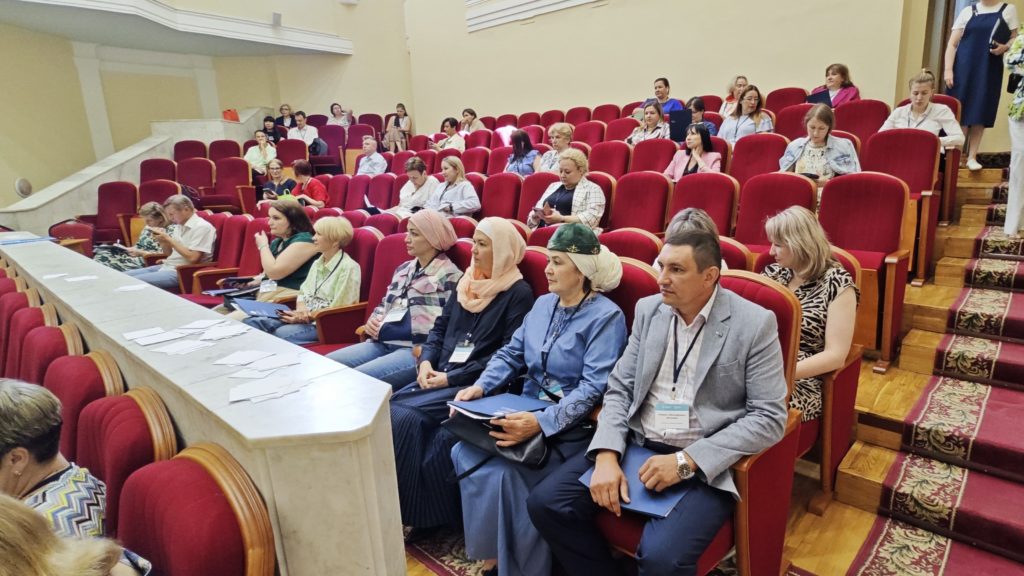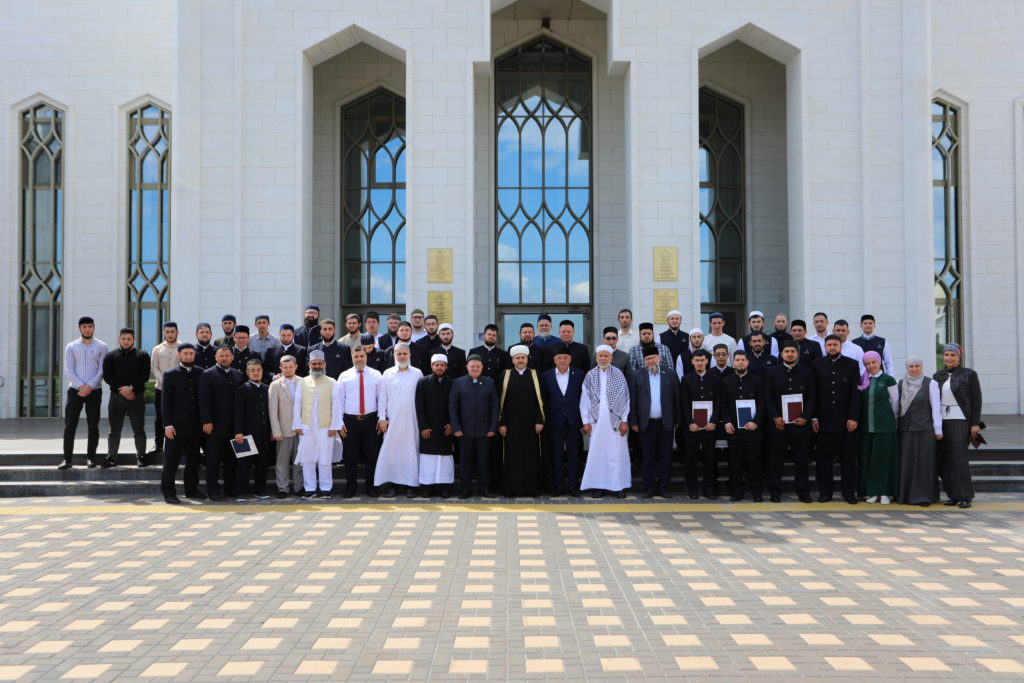On June 27, Bolgar Islamic Academy held a meeting of the Council for Conferring the Theological Degree of Doctor of Islamic Sciences. Completed doctoral dissertations were accepted for discussion during the meeting, and expert commissions on them were approved.
It should be noted that the criteria for doctoral dissertation preparation, testing of results, preliminary review, and defense have changed over time. The bar for membership in and eligibility to serve as a member of the Dissertation Council has also been raised.
We would like to remind that that the chairman of the council is Dr. Muhammad Aiman al-Zahrawi, lecturer at the Academy, deputy chairman is Ramil Adygamov, candidate in historical sciences and associate professor who works as the head of the department of humanities and Arabic at the Kazan Islamic University, while secretary of the council is Rustam Nurgaleev doctor of Islamic sciences and vice-rector for academic affairs at the Kazan Islamic University, secretary of the Ulema Council of the Spiritual Board of Muslims of the Republic of Tatarstan.
Members of the council are leading domestic and international theologians, Islamic scholars, and orientalists from such countries as Russia, Syria, Egypt, Jordan, India, Bahrain, Yemen, Malaysia, etc.
The acting rector of the Academy, Ainur Timerkhanov, welcomed the council members at the start of the meeting. The training of doctoral students at the Academy and the subsequent defense of their doctoral dissertations by them, he said, are two of the most crucial common tasks, and the success of the Bolgar Islamic Academy – the highest link in the chain of Islamic education in Russia, which is tasked with developing the intellectual elite of the Russian Muslim Ummah – is greatly dependent on how well these tasks are resolved.
“The Academy held its last defenses a year and a half ago. We purposefully took a break, especially since there were valid reasons related to the well-known pandemic restrictions. We have made a number of changes to our local provisions in light of the analysis of the essentially unique experience of conducting the first defenses of doctoral dissertations beginning in 2019. These changes aim to tighten the requirements for finishing doctoral dissertations while also improving the quality of their implementation and subsequent review. I have no doubt that these actions will yield positive outcomes in the future. Now that our council is operational, I hope that regular meetings and dissertation defenses will be held,” Timerkhanov addressed the participants.
Three dissertations were reviewed by the Dissertation Council during the meeting: Contribution of Tatar theologians to the Quranic sciences and to the study of rasm (rules of writing) of the Quran by Kamil Samigullin, Mufti of the Spiritual Board of Muslims of the Republic of Tatarstan, 2nd year doctoral student (scientific supervisor: Dr. Saif al-Asri), Quranic approaches to resolving intrapersonal conflict by Ruslan Sayakhov, vice-rector for research of Bolgar Islamic Academy, 2nd year doctoral student (scientific supervisor: Dr. Aiman al-Zahrawi), Theological views of Muhammad Parsa (1348–1420) in his treatise Alfusul as-Sitta (The six sections): analysis of ideas and tahkyyk by Salim Gainullina, 2nd year doctoral student (scientific supervisor: Ramil Adygamov). All works are recommended for defense in the prescribed manner after passing a preliminary discussion at the Department of Religious and Humanitarian Disciplines.
An expert commission was formed and approved for each doctoral dissertation, with the task of studying the works and preparing a conclusion on their compliance or non-compliance with the requirements for the next meeting, and recommending accepting them for defense or returning them for revision, indicating the shortcomings.
The defense of dissertations that have passed all stages of the examination is scheduled for October of this year.
The work of the Dissertation Council will be covered on the Academy’s website.
